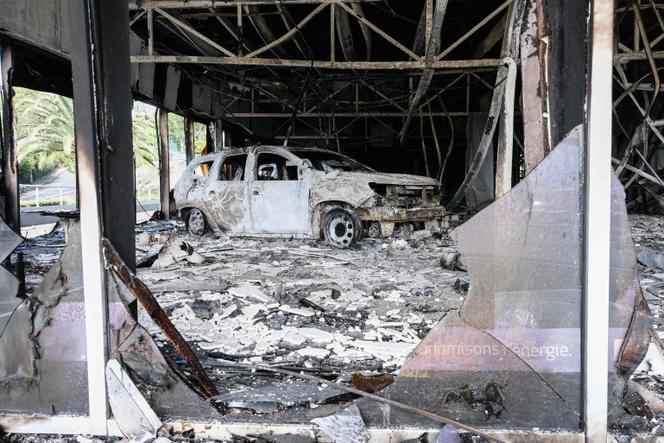


In the early hours of Tuesday, May 14, the manager of a small business on the outskirts of the New Caledonian capital of Nouméa could barely speak as she stared at the still-smoldering remains of her entire life's investment. She was one of the first to be affected by the wave of violence that has surged in the French overseas territory since Monday evening. Yet she is far from alone.
Waking up on the morning after the first night of unrest, the archipelago was stunned by the scale of the destruction, which had mainly affected dozens of businesses that had been set on fire or looted. In addition to the ever-increasing death toll, the economy has already taken a nosedive.
The agenda for the first meeting of the French government's economic crisis unit, held on Thursday, May 16, in the presence of employers' representatives, swiftly focused on the urgency of the situation. The challenge was to continue supplying the 180,000 people living in the Nouméa metropolitan area, after "80% to 90% of the distribution network had been destroyed," according to David Guyenne, president of the New Caledonian Chamber of Commerce and Industry (CCI).
This is not yet the time for economic activity to recover, and business owners know they're in for a rude awakening. To date, the CCI has estimated the economic damage at almost €200 million. According to the organization, the proportionate figure for France would be some €40 billion. This estimate does not take into account public infrastructure damage, or operating losses incurred since the economy came to a near-complete standstill on Tuesday. These figures, moreover, remain provisional. The loyalist president of New Caledonia's South Province, Sonia Backès, has called for €150 million in government support via an "exceptional reconstruction fund."
"We're going to spend a fourth night without any means of protection. Over a hundred businesses have been totally destroyed, and this continues day after day, night after night," said Mimsy Daly, president of the New Caledonian branch of the MEDEF employers' federation. According to her, "1,500 to 2,000 people [are] left by the wayside."
Adding to this already gloomy picture is the unprecedented crisis in the nickel sector. Of the two metallurgical plants that are still operating, the one in the territory's south is now under threat of being mothballed for lack of supplies, due to the capital's economic shutdown. Société Le Nickel, the industry's historic operator in the archipelago, reported earlier in the day that a fire had affected a piece of equipment, jeopardizing operations at one of its largest mining centers.
You have 57.44% of this article left to read. The rest is for subscribers only.
